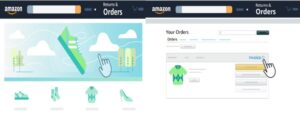EU VAT changes OSS and IOSS
From 1 July 2021, the EU will create a similar One-Stop-Shop (OSS) for B2C suppliers of all services and goods. Which will remove the requirement for a business to have multiple VAT registrations. It will report obligations in the EU.
At the same time, the distance sales threshold will abolishes and replace with a common threshold of €10,000 (£8,600) throughout the EU up to which B2C. EU cross-border supplies remain subject to the VAT rules of the Member State of dispatch. Which supplies become subject to the VAT rules of the Member State of destination.
Under this new system, a single report scheme covering sales of imported goods to EU consumers up to a value of €150 (£135), which is a VAT exemption upon import. It will apply if the trader declares and pays the VAT at the time of the sale using the Import One-Stop-Shop (IOSS number).
The new package of legislation from the EU will also open the possibility of paying import VAT on customs declarations via a simplified monthly payment.
Online marketplace (OMP) involvement
If the seller trades via an online marketplace (OMP) such as Amazon or eBay, then the seller has a choice:
- have an OSS VAT registration or else; or
- the OMP is liable for collecting the VAT on behalf of the seller and paying to the respective VAT jurisdiction.
In theory, this approach design to level the playing field. Many sellers on OMP’s are base in China. The sellers can sell goods without duty or VAT and the tax loss is immense. A seller who does not register for OSS will see their listing price on Amazon increase by 20%. It may well make their products not much cheaper than a domestic seller, which is the whole point.
OSS registration
Multiple VAT registrations can involve considerable cost. The new OSS login aims to simplify matters by allowing the non-EU seller (including the UK) to register for VATid in one EU member state. It will collect VAT from all their EU sales and report on a single VAT return.
This works in the same way as Mini One Stop Shop (MOSS) which currently exists for the sale of digital services to consumers, OSS is an extension of that scheme to cover goods.
In some EU member states, online marketplaces, such as Amazon, are deemed the supplier of the goods. Which may mean that some online sellers could VAT deregister for certain EU Member States. If they only sell via these marketplaces, as it will the responsibility of the marketplace to collect the VAT at the time of the sale. Therefore, you need to VAT number check.
OSS returns
The OSS simplification does not come into effect until 1 July 2021.
From 1 January 2021 a UK seller has to decide whether to register for VAT in each country where they sell into the EU. The alternative is to let the customer pay the import VAT and reduce the customer experience, or to collect the foreign VAT as described in the earlier example.
This six-month delay in implementing the OSS VAT is quite inconvenient, as makes it difficult for UK businesses to establish an approach that they can explain to customers and maintain some level of continuity. The long-term solution will be OSS: charging EU customers their local EU VAT rate.
A UK business has to consider the customer experience and who pays the VAT, from January 2021, and then from July 2021 the OSS makes the decision for you.
Register for VAT + file quarterly returns = one online portal
The Import One-Stop Shop (IOSS) for non-EU businesses.
This scheme is specifically for the sale of “low value” goods (not exceeding €150) from outside the EU to buyers inside the EU. If the value of your goods is higher than that, then you should follow other traditional Import VAT rules.
One problem is that customers who use to paying UK VAT at 20%. It may now face with higher rates. For example a customer in Sweden will need to pay 25% on standard-rated goods. There are reports of EU customers abandoning UK businesses due to the complications and extra costs.
Register with the IOSS
A business registering for the Amazon IOSS number will receive a unique number that must be quoted on all shipments to the EU. IOSS registration your business for VAT in an EU member state. The country’s tax website should offer the option for you to register according to the new VAT ecommerce rules. Look for the ‘non-Union’ or ‘import’ OSS scheme. You will receive a VAT Registered Number (VRN) and access to the online portal.
IOSS returns
A single IOSS VAT return will then be filed monthly or quarterly to declare all import VAT due. A single cash payment will then be made to the tax authority in the chosen country of IOSS registration. You will say how much you owe. UK input tax related to those sales will of course continue to be included on the domestic UK VAT return. So a payment will still require, even if the UK return shows a refund is due. Any VAT paid on expenses in the EU will not claim on either a UK VAT return or an IOSS return.
It is expected that if you do not use the IOSS scheme. Your customer will have to pay VAT when they receive your goods. BUT that is not always the case. (Of course, it could not be so simple!). Each country has the right to choose who is responsible for Import VAT on that shipment. Is it you, are it your customer, or is it the platform you sold from (if you used one)? You will need to check with each country where you’re selling to be clear on where you or your buyer is responsible.
For help getting started on registering your pan-EU business for VAT, get in touch with our team.



